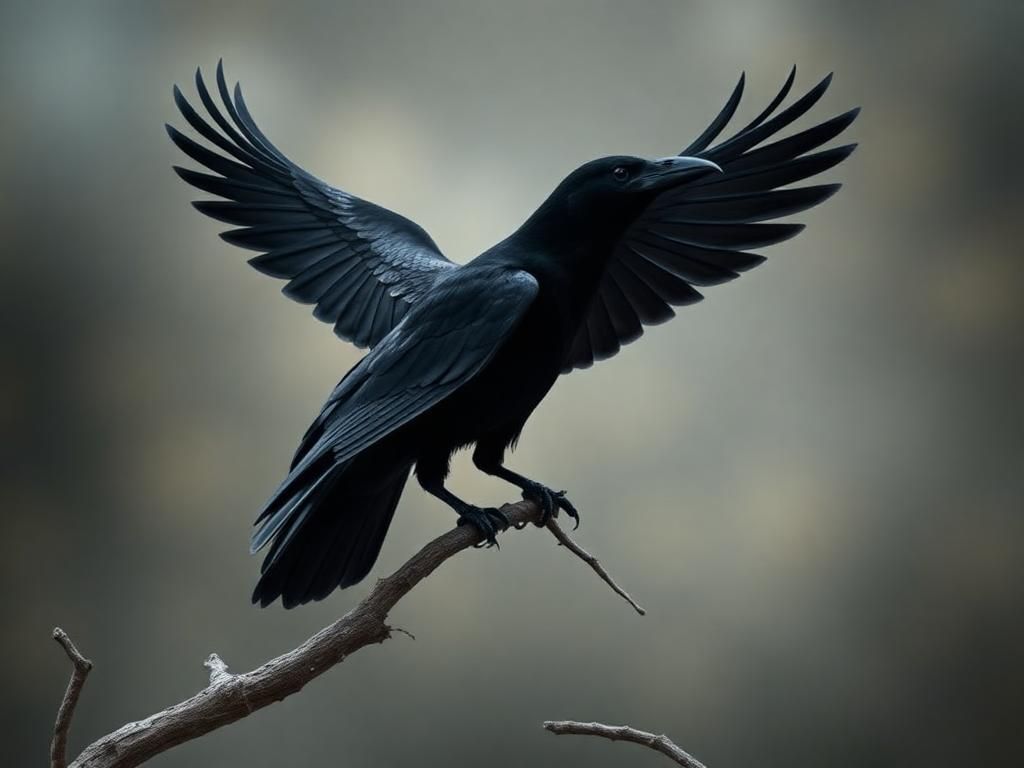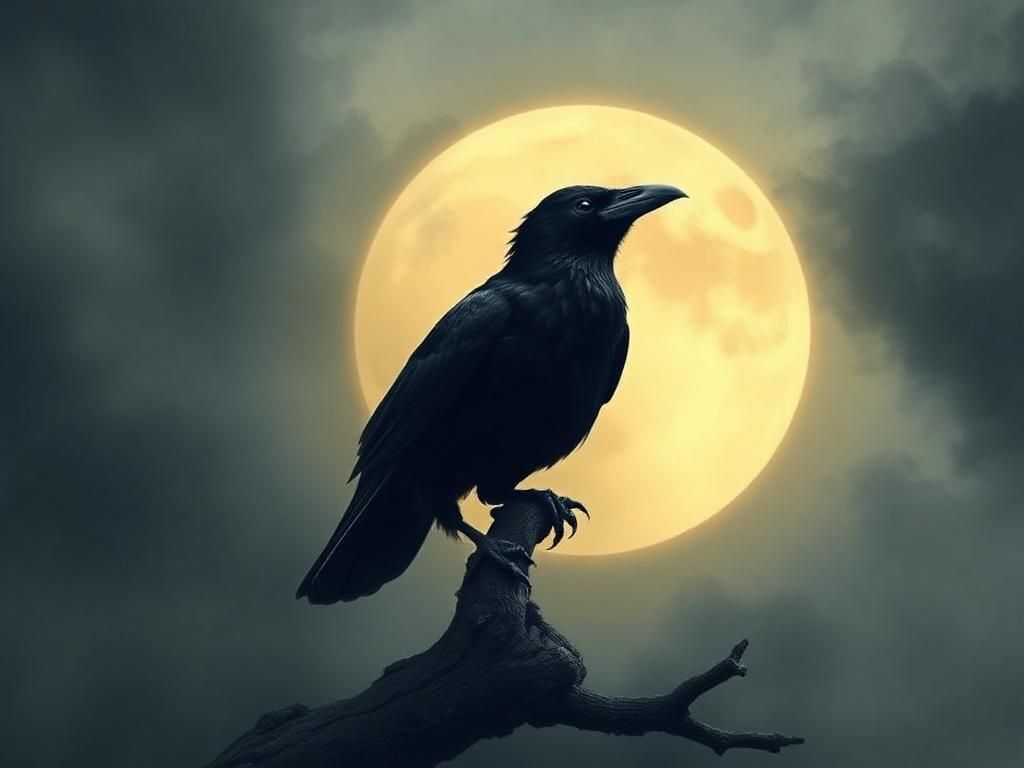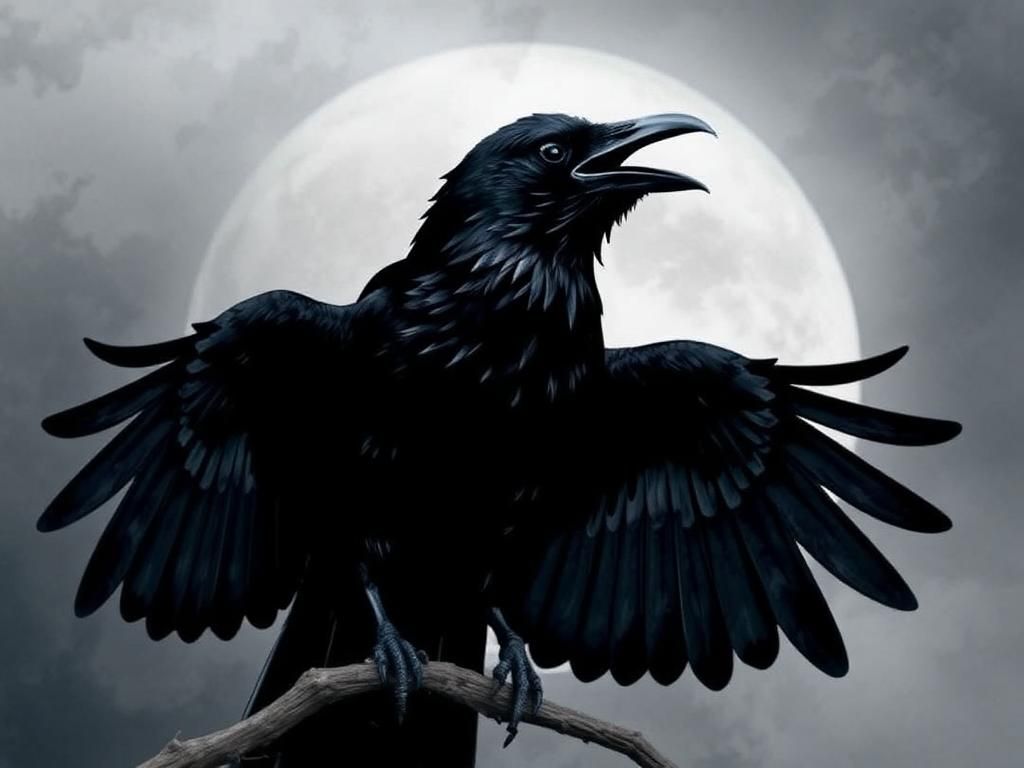Symbolism plays a crucial role in our understanding of the world, allowing us to ascribe deeper meanings to the things around us. Among the myriad of symbols present in various cultures, the crow stands out as a creature rich in meaning and significance. Found in folklore, literature, and mythology across the globe, crows evoke a range of symbolic interpretations that reveal the complexities of human experience. This article delves into the multifaceted question of what does the crow symbolize, exploring its cultural significance, common meanings, regional variations, and psychological interpretations.
Cultural Significance of Crows
Crows in Mythology
Crows have held an essential role in numerous mythologies. Across various cultures, these birds have been credited with traits that range from wisdom to malevolence. In Native American traditions, the crow is often seen as a creator, a figure that birthed life itself. Norse mythology presents the crow as a symbol of war and fate, where Odin, the god of wisdom and war, is frequently accompanied by two crows, Huginn and Muninn, representing thought and memory.
In Celtic folklore, crows are often linked to the otherworld and are perceived as harbingers of death, yet they also symbolize transformation and rebirth. This diversity in meanings encapsulates what does the crow symbolize—a complex relationship between life, death, and wisdom.
Crows in Literature and Art
Crows have been prominent figures in literature and art, often embodying deeper themes of life, death, and the human psyche. Edgar Allan Poe’s iconic poem, “The Raven,” uses the crow as a messenger from the afterlife, emphasizing themes of loss and longing. This piece is a testament to how the symbolism of crows weaves into our understanding of grief and memory.
In visual arts, crows have been depicted in various forms—from dark and foreboding representations in paintings to intricate sculptures highlighting their intelligence and adaptability. The recurring theme of crows in different artworks serves to underscore their rich symbolic heritage and emotional resonance.
Common Symbolic Meanings of Crows
Intelligence and Adaptability
Crows are known for their remarkable cognitive abilities. They exhibit problem-solving skills and social behavior that rival many mammals, underscoring their status as one of the most intelligent bird species. This intelligence is not only fascinating biologically but also culturally significant. In various cultures, crows symbolize ingenuity, adaptability, and resourcefulness, reflecting the traits of those who identify with them. Thus, understanding what does the crow symbolize includes acknowledgment of its representation of intelligence.
Death and the Afterlife
Incidents of crow sightings have long been associated with death and the afterlife. In multiple cultures, crows are viewed as omens, often seen as symbols signaling impending change or loss. This notion is particularly prominent in European folklore, where crows are frequently interpreted as guides for souls travelling between worlds.
The darker aspects of crow symbolism serve as a reminder that death is an integral part of life’s cycle, and in many cultures, crows are revered as beings that bridge the mortal and spiritual realms, embodying the complex themes of transformation and renewal.
Messengers and Omens
In folklore, crows have marked their territory as messengers. Many traditions view them as watches against bad fortune, delivering warnings or signs from the spirit world. In Native American cultures, sightings of crows are revered as spiritual messages. This belief encourages individuals to pay close attention to their surroundings, as the crows’ symbolic presence often indicates transitions or critical decisions.
The varied interpretation of crow sightings highlights another layer to what does the crow symbolize. Depending on the context, the crow can hold different meanings ranging from a positive omen to a cautionary tale.
Trickery and Mischief
Renowned for their cunning and playful nature, crows are frequently associated with trickery and mischief in storytelling. Their clever antics inspire tales that portray them as pranksters, which often serve to teach broader life lessons about the balance of cunning and morality.
In many myths, these birds serve as teaching tools for warning against deception, reminding us that intelligence, while valuable, can be employed both positively and negatively. These narratives enrich the understanding of what does the crow symbolize, revealing the dual nature of wisdom that can disguise itself as folly.
Regional Variations in Crow Symbolism

North America
In North America, indigenous perspectives highlight the crow as a powerful spirit and a trickster. Many Native American tribes celebrate the crow as a creator being, while others caution against its deceptions. Modern interpretations have expanded to include representations of resilience and adaptability, emphasizing the crow’s role in urban landscapes and contemporary culture.
The symbolism of the crow is not static; it evolves with societal changes, mirroring shifts in human perception and interaction with nature.
Europe
Crows have historically held significant roles in European folklore. In medieval Europe, they became symbols of superstition, often regarded as omens of misfortune. Many tales use crows as symbols in witchcraft, where they are seen flying alongside witches and believed to carry their messages. Their presence in various myths, like that of the Welsh tale of Bran the Blessed, portrays them as creatures of immense wisdom and foreknowledge.
These varied interpretations deepen the understanding of what does the crow symbolize and indicate how cultural context shapes symbolic meanings.
Asia
In Asian cultures, crows boast a unique set of symbolic meanings. In Japan, crows, particularly the Japanese crow (kaeru), are revered in Shinto beliefs and associated with ancestral spirits. They are often viewed as protectors and bringers of messages from the spirit world. In India, crows are considered sacred in certain traditions, especially during ancestral rites. The crow’s connection to spirituality and philosophy in these cultures showcases the diverse meanings attributed to this symbol.
Psychological Interpretations of Crows
Archetypal Symbols
In Jungian psychology, crows emerge as archetypal symbols that represent the shadow self. This connection emphasizes the darker aspects of human nature, including hidden fears and desires. Reflecting on what does the crow symbolize, crows encourage individuals to confront their shadows, aiding in personal growth and transformation.
The presence of crows in dreams often suggests an invitation to explore one’s subconscious, reflecting the balance between light and dark within.
Symbolism in Dreams
Dreaming about crows is linked to various interpretations in psychological analysis. A crow in a dream can signify change or transformation, suggesting that the dreamer may be on the verge of a personal breakthrough. Alternatively, it may symbolize feelings of fear, foreboding, or mischief, depending on the dream’s context. Recognizing these themes highlights how sightings of crows, even in dreamscapes, contribute to understanding what does the crow symbolize in an individual’s life.
Personal and Spiritual Significance
Intuitive Insights from Crows
Many individuals perceive crows as guides or totem animals. Crows symbolize intuitive insights, serving as reminders to pay attention to the world around us. Personal experiences involving crow sightings often reveal profound personal meanings, suggesting that individuals intersect with the crow’s energy when significant life transitions occur.
These moments encourage deeper reflection on one’s path, urging individuals to remain receptive and attentive to the changes occurring in their lives.
Crows in Spiritual Practices
Crows frequently occupy spaces in various spiritual practices, including divination. They are employed within rituals that utilize their symbolism as carriers of messages from the spirit world. Modern spiritual movements often invoke the crow’s energy to connect with inner wisdom or to enhance intuition.
Understanding what does the crow symbolize in these contexts highlights its role in spiritual guidance and personal enlightenment, showcasing its relevance in contemporary spiritual practices.

Conclusion
The exploration of what does the crow symbolize reveals a rich tapestry of meanings interwoven through various cultures and temporal landscapes. From wisdom and transformation to trickery and mischief, crows embody the complexities of human experience and interpretation. Their significance resonates deeply, inviting individuals to delve into their personal encounters with these enigmatic creatures. As you continue your journey, consider your own connections with crows and the messages they may carry.
Further Reading and Resources
For those interested in exploring the topic further, the following resources provide deeper insights into the multifaceted symbolism of crows:
– “The Wisdom of Crows: How They Teach Us About Life” — An exploration of crow intelligence and its implications in mythology and human perspectives.
– “Crows: The Bad Boys of Nature” — A comprehensive study on the role of crows in culture, art, and their impact on ecosystems.
Acknowledging cultural sensitivity is essential in discussing symbolism across different societies, as meanings can vary widely based on cultural context and experience.
| Symbolic Aspect | Cultural Context | Common Interpretations |
|---|---|---|
| Intelligence | Global | Ingenuity and resourcefulness |
| Death | Various cultures | Transformation and omens |
| Messengers | Folklore | Spiritual messages |
| Trickery | Folklore | Lessons about morality |
| Cultural variations | North America, Europe, Asia | Unique interpretations and representations |
FAQs
1. What is the main symbolism of crows across cultures?
Crows symbolize intelligence, adaptability, and are often associated with themes of death, transformation, and mischief.
2. Why are crows considered messengers?
In various folklore traditions, crows are believed to carry messages between the living and the spiritual realm, offering insights or warnings.
3. How do psychological interpretations view crows?
In psychology, crows represent the shadow self and encourage individuals to confront hidden aspects of their psyche.
4. Do crows have a connection to dreams?
Yes, dreaming about crows often signifies change or transformation, and can reflect both fears and intuitive insights.
5. How do crows serve as totem animals?
Crows are viewed as totem animals that can provide guidance, urging individuals to pay attention to intuitive insights and their surroundings.
6. What role do crows play in modern spirituality?
In modern spiritual practices, crows serve as symbols for divination and personal guidance, connecting individuals with their inner wisdom.
7. Can crows symbolize both good and bad omens?
Yes, the symbolism of crows can vary significantly and may represent both positive and negative omens depending on the cultural context.
8. How are crows viewed in indigenous cultures?
In many indigenous cultures, crows are often seen as creators or tricksters, possessing a rich symbolic heritage that highlights their significance in local mythology.
9. Are crows and ravens symbolically different?
While both are often associated with intelligence and death, ravens typically have stronger connections to the mystical and supernatural in various cultures.
10. How can I incorporate crow symbolism into my life?
You can explore crow symbolism through mindfulness practices, rituals, or by reflecting on your encounters with these birds to interpret their messages.
